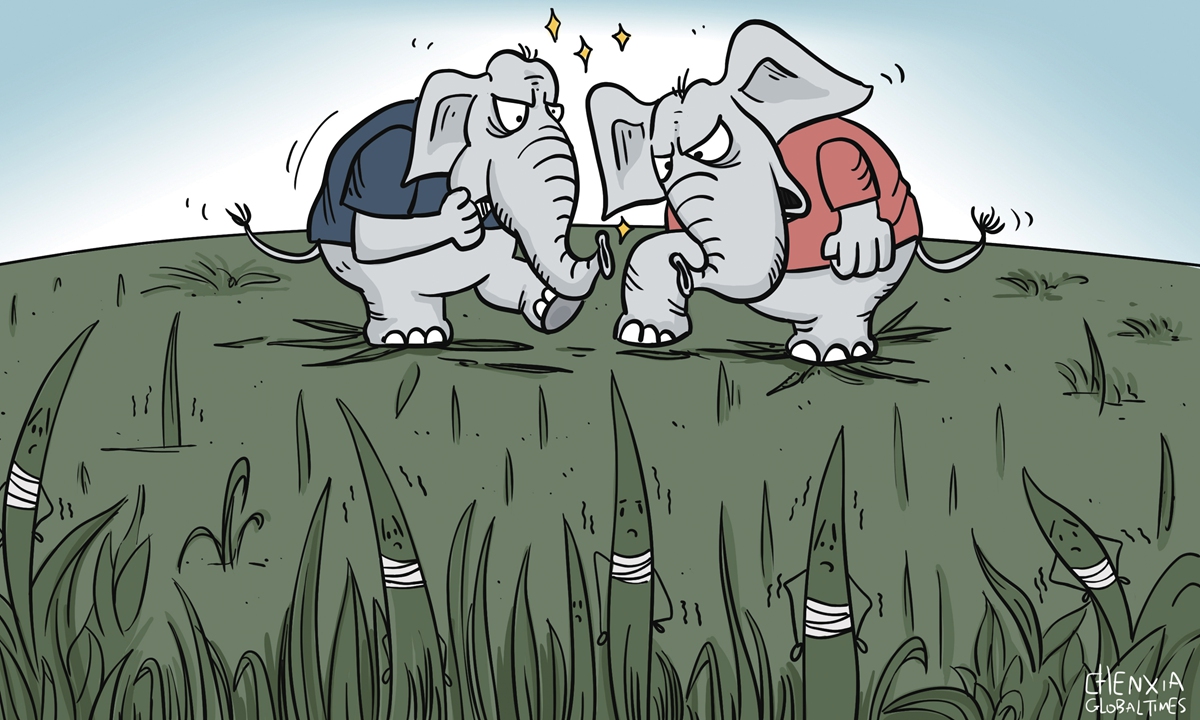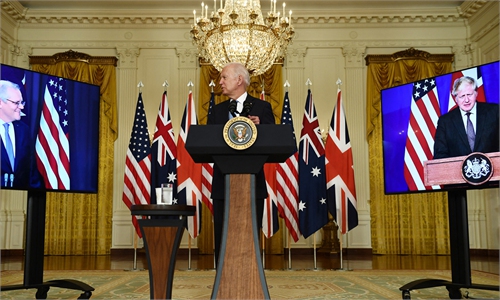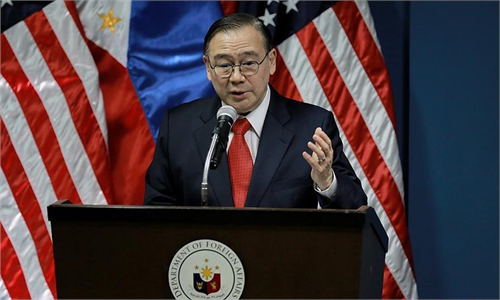
Illustration: Chen Xia/Global Times
Some ASEAN members have voiced their stances on the new alliance among the US, the UK and Australia, known as AUKUS. They represent concerns of the Asian bloc.
After Indonesia and Malaysia warned that AUKUS could lead to an arms race in the region, Malaysia on Wednesday said it plans to seek China's position on the new defense partnership, according to a Reuters report.
AUKUS is obviously oriented under a Cold War mind-set. It is likely to bring about a regional arms race and even nuclear arms race. Which side should ASEAN take if a new cold war and new arms race break out between China and the US? ASEAN is concerned that it could be caught in the middle. Washington has been seeking to rope in some ASEAN members, such as Malaysia, Indonesia, the Philippines, and Singapore. High-level US officials have paid various visits to Southeast Asia this year, including a historical visit by US Vice President Kamala Harris to Vietnam. The aim was to promote US Indo-Pacific Strategy. But regional countries are relatively clear: They don't want to take sides.
ASEAN will continue its balancing strategy. This will be harder and harder to sustain in the future due to AUKUS. Southeast Asian countries used to equivocate with Washington. But confronted with a tangible alliance on their doorstep, they have to figure out a way forward.
Countries such as Singapore, Indonesia, and Thailand don't want to see China and the US engage in a life-and-death game. They prefer China-US cooperation that allows them to benefit from their balancing acts.
Even though Manila has backed AUKUS, it still needs to coordinate with Beijing in terms of security issues. So the Philippines hope to have US support, but doesn't want to stand against China. This is also the case for Vietnam. They don't want to harm cultural and economic relations with China, which are part of their national interests. They have no interests to blindly follow the US.
Although ASEAN has seen internal discord for a long time, the members still hold some common grounds. This being the case, handling the question of being caught in the middle between Beijing and Washington will be the core topic in the discussion of ASEAN security integration.
Some Western media outlets clamor that AUKUS will reshape the power balance in the Indo-Pacific region, benefiting countries like Thailand, the Philippines, and Vietnam. However, while regional security is dominated by China and the US, this will not be changed by some nuclear-powered submarines owned and operated by Australia. Nonetheless, Australia's possession of such submarines will threaten some ASEAN members, especially Malaysia and Indonesia.
This may trigger a new round of arms race. Some Southeast Asian countries have already started to gear up to boost their military capabilities. They have not touched the sensitive part of developing nuclear weapons. Instead, they have invested hugely in conventional weaponry. For example, a regional race for submarines of advanced models has been going on for years. Many advanced fighter jets have been purchased and deployed to regional armies.
The key question for the future is: How will they manage the race? All of them want to reach a balance. But the threats the ASEAN countries face are mounting.
In this context, the first thing ASEAN members need to do is to unite and play a more important role. "Centrality has become a mantra for ASEAN over the years. It is enshrined in the ASEAN Charter, adopted in 2007," according to the Nikkei. ASEAN centrality means that ASEAN lies at the core of the region's multilateral security and economic arrangements. But ASEAN will face a test of its wisdom whether it is able to act as a mediator between China and the US. This requires ASEAN members to form a unified voice. It must prevent internal divergences from resulting in policy imbalances. ASEAN was founded against the background of the Cold War, from which the members have clearly learned lessons.
They all have witnessed how small countries struggled to survive being caught in the middle in the Cold War. This is why they set up a self-centered organization to ensure centrality in Southeast Asian affairs. If they want to avoid a new cold war, or survive in a new cold war, they have to retake ASEAN's original aspirations and mission as a united organization. They must play a leading and coordinating role and be more prominent in the sphere of regional security. Otherwise, ASEAN may be completely divided in the future, with many countries falling victim.
The author is director of the World Navy Research Center at the National Institute for South China Sea Studies. opinion@globaltimes.com.cn


